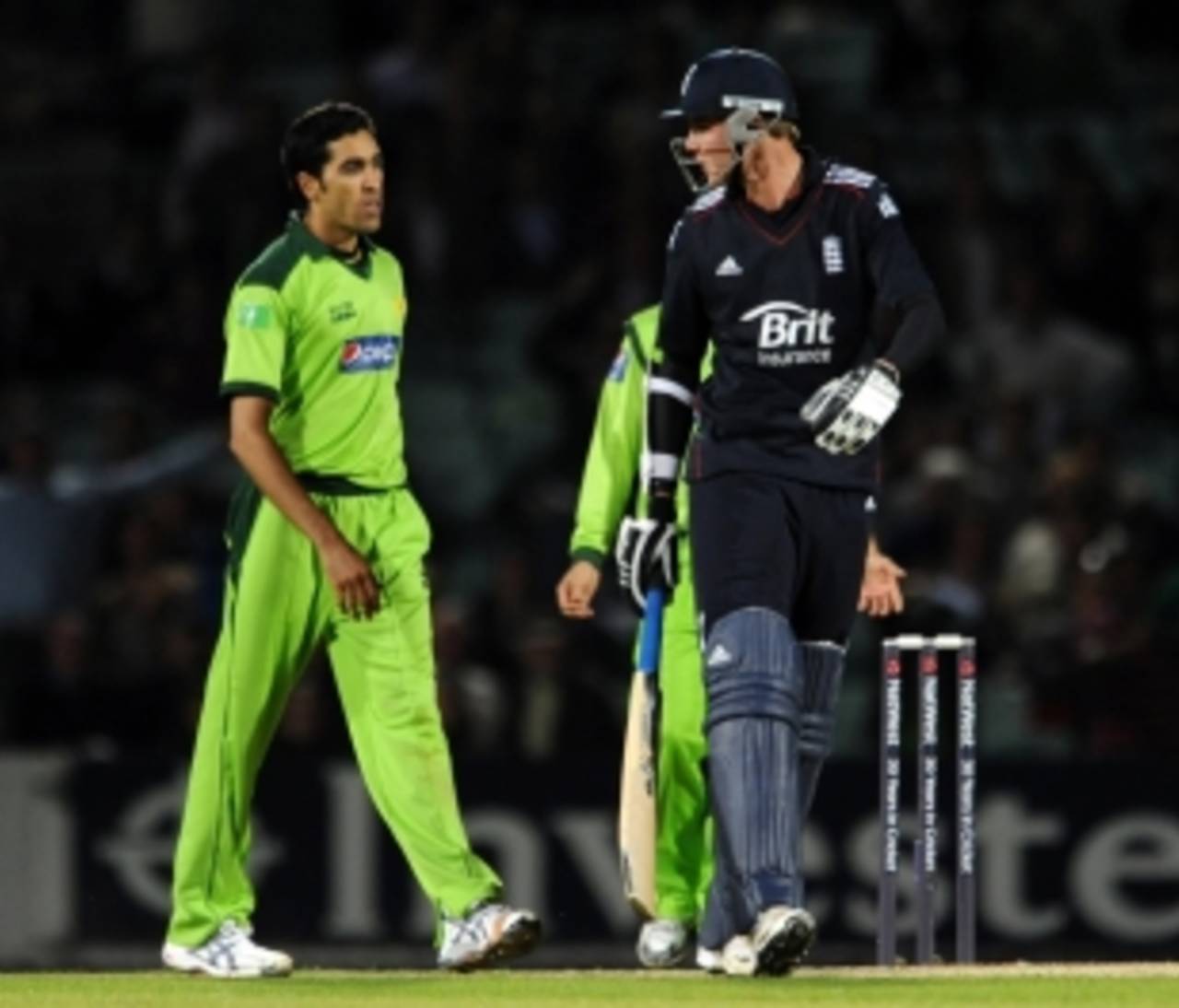A little less commentary please
Newsflash: Most cricket fans have nothing good to say about television commentary
Samir Chopra
25-Feb-2013

Imagine a broadcast where the only voices heard are of the players • PA Photos
Newsflash: Most cricket fans have nothing good to say about television commentary. My urge to broadcast this piece of news was sparked by the start (and end, yesterday) of another televised encounter in cricket--the 2000th test. And by the time the last ball was bowled, I had been reminded yet again, relentlessly, that no one quite does inanity like a bunch of suited ex-Test cricketers with microphones. To quote Stanley Fish, "Ritual, if empty, conversation has its time and place, and it's often during halftime". Or rather in cricket, it is in the session before lunch, the one after, and then the one before close of play.
By now, the complaints made against television commentators are familiar and fall into well-established categories: they are dismal peddlers of cliché and unexamined prejudice; they traffic in superfluity; they dispense reams of pedantry. But mainly, they talk and babble a great deal, and in doing so, they often obscure the action taking place on the pitch, in front of our eyes.
To be sure, sometimes commentators dispense wisdom, especially when supplemented by the wizardry of the super slow-mo. But this is rare, and does not make up for the other aural tortures inflicted on us viewers. No Sir, the signal to noise ratio is appalling when it comes to the television commentator. A good television commentator, like Flannery O' Connors' "good man", is hard to find.
But I come not just to bury the television commentator but to also offer "positive theory", a possible rescue for viewers tormented by the posse of pundits. I propose therefore that broadcasters of cricket games take the following initiative: supplying viewers a video feed that includes all the audio tracks (crowd sounds, stump microphone) except for the commentary. This video feed should be available on choice to the viewer when the telecast starts (perhaps it could be on a separate channel, perhaps the viewer could toggle back and forth on the same channel). This is eminently technically feasible; I think the economics could be worked out.
The viewer would still have access to the live action and the most important sounds of the game: the sounds of bat and ball, the pitch sounds made available by the stump microphone (including some player chatter) and crowd noise. This solution avoids the extremes of turning the volume down completely (which some desperate viewers have been known to do) or playing the radio commentary instead (which used to be a solution much in vogue, but brings about a bit of an incongruity between the radio chatter and the visible image). The viewer has the physicality of the game's sounds available to him without any of the usual interference of the commentator.
This feed could feature the usual between-overs commercials so dear to advertisers. The game's broadcaster could check the audience ratings for the video-only feed, and if they are high enough (caused by a migration from the usual feed to the video-only version), they could justify the supply of the video-only feed. Who knows, if they outstrip the video-plus-audio feed's ratings, then (we can only dream) television rights holders might dispense with the commentator altogether.
I might be accused of being facetious, of having over-stated the case against the television commentator. But I think there is merit in the idea of utilising the technological possibilities of television to make possible a presentation of a cricket match that affords a genuinely new cricket watching experience. We are used to having the game described to us, analysed and dissected threadbare. But this way of watching the game on television might bring us closer in one way to the live experience itself: the sights and sounds, all without a chattering bunch in our ears.
Samir Chopra lives in Brooklyn and teaches Philosophy at the City University of New York. He tweets here